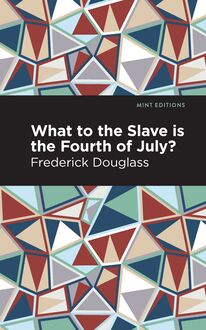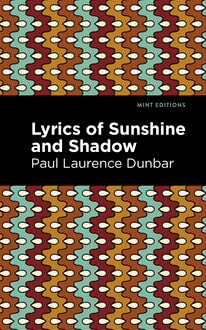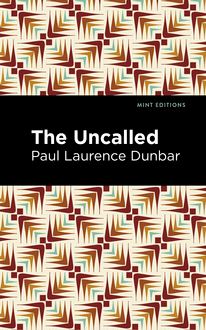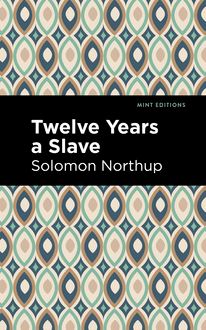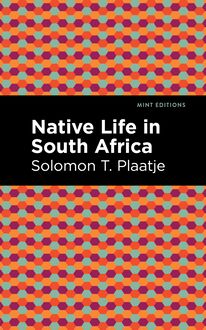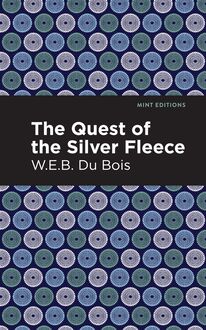-
 Univers
Univers
-
 Ebooks
Ebooks
-
 Livres audio
Livres audio
-
 Presse
Presse
-
 Podcasts
Podcasts
-
 BD
BD
-
 Documents
Documents
-
- Cours
- Révisions
- Ressources pédagogiques
- Sciences de l’éducation
- Manuels scolaires
- Langues
- Travaux de classe
- Annales de BEP
- Etudes supérieures
- Maternelle et primaire
- Fiches de lecture
- Orientation scolaire
- Méthodologie
- Corrigés de devoir
- Annales d’examens et concours
- Annales du bac
- Annales du brevet
- Rapports de stage
La lecture à portée de main
Vous pourrez modifier la taille du texte de cet ouvrage
Découvre YouScribe en t'inscrivant gratuitement
Je m'inscrisDécouvre YouScribe en t'inscrivant gratuitement
Je m'inscrisEn savoir plus
Vous pourrez modifier la taille du texte de cet ouvrage
En savoir plus

Description
The Fire in the Flint (1924) is a novel by Walter Francis White. Although he is generally recognized for his accomplishments as the longtime leader of the NAACP, White also wrote several novels during the Harlem Renaissance exploring the themes of Alain Locke’s New Negro Movement. Praised by W. E. B. Du Bois in The Crisis and by Konrad Bercovici in The Nation, The Fire in the Flint remains an invaluable testament to the power of fiction to address political matters. Dr. Kenneth Harper finds it difficult to overcome the deep inequities of life in the American South. Born and raised in Georgia, he returns to his hometown following his graduation from medical school and service in the First World War. Determined to open a clinic for his friends and neighbors, he avoids confrontation with white townspeople and focuses on the task at hand. Soon, however, he encounters opposition from neighbors who regard his success and intelligence as a threat to their power. Eventually, Harper is forced to lay his life on the line by opposing the Ku Klux Klan. The Fire in the Flint is a powerful bildungsroman grounded in truth and moral decency. Praised by Nobel Laureate Sinclair Lewis upon publication, White’s novel is a largely forgotten masterpiece of the Harlem Renaissance, perhaps the finest decade for art in the history of American culture. With a beautifully designed cover and professionally typeset manuscript, this edition of Walter Francis White’s The Fire in the Flint is a classic of African American literature reimagined for modern readers.
Sujets
Informations
| Publié par | Mint Editions |
| Date de parution | 21 mai 2021 |
| Nombre de lectures | 0 |
| EAN13 | 9781513287454 |
| Langue | English |
| Poids de l'ouvrage | 2 Mo |
Informations légales : prix de location à la page 0,0500€. Cette information est donnée uniquement à titre indicatif conformément à la législation en vigueur.
Extrait
The Fire in the Flint
Walter Francis White
The Fire in the Flint was first published in 1924.
This edition published by Mint Editions 2021.
ISBN 9781513282435 | E-ISBN 9781513287454
Published by Mint Editions®
minteditionbooks .com
Publishing Director: Jennifer Newens
Design & Production: Rachel Lopez Metzger
Project Manager: Micaela Clark
Typesetting: Westchester Publishing Services
T O
M Y W IFE
“The fire in the flint never shows until it is struck.”
— Old English Proverb
C ONTENTS I II III IV V VI VII VIII IX X XI XII XIII XIV XV XVI XVII XVIII XIX XX XXI XXII XXIII
I
Kenneth Harper gazed slowly around his office. A smile of satisfaction wreathed his face, reflecting his inward contentment. He felt like a runner who sees ahead of him, the coveted goal towards which he has been straining through many gruelling miles. Kenneth was tired but he gave no thought to his weariness. Two weeks of hard work, countless annoyances, seemingly infinite delays—all were now forgotten in the warm glow which pervaded his being. He, Kenneth B. Harper, M.D., was now ready to receive the stream of patients he felt sure was coming.
He walked around the room and fingered with almost loving tenderness the newly installed apparatus. He adjusted and readjusted the examining-table of shining nickel and white enamel which had arrived that morning from New York. He arranged again the black leather pads and cushions. With his handkerchief he wiped imaginary spots of dust from the plate glass door and shelves of the instrument case, though his sister Mamie had polished them, but half an hour before until they shone with crystal clearness. Instrument after instrument he fondled with the air of a connoisseur examining a rare bit of porcelain. He fingered critically their various parts to see if all were in perfect condition. He tore a stamp from an old letter and placed it under the lens of the expensive microscope adjusting and readjusting until every feature of the stamp stood out clearly even to the most infinite detail. He raised and lowered half a dozen times or more the lid of the nickelled sterilizer. He set at various angles the white screen which surrounded the examining-table, viewed it each time from different corners of the room, and rearranged it until it was set just right. He ran his hand over the card index files in his small desk. He looked at the clean white cards with the tabs on them—the cards which, though innocent now of writing, he hoped and expected would soon be filled with the names of innumerable sick people he was treating.
His eye caught what he thought was a pucker in the grey-and-blue-chequered linoleum which covered the floor. He went over and moved the sectional bookcase containing his volumes on obstetrics, on gyn æ cology, on materia medica , on the diseases he knew he would treat as a general practitioner of medicine in so small a place as Central City. No, that wasn’t a pucker—it was only the light from the window striking it at that angle.
“Dr. Kenneth B. Harper, Physician and Surgeon.” He spelled out the letters which were painted on the upper panes of the two windows facing on State Street. It thrilled him that eight years of hard work had ended and he now was at the point in his life towards which he had longingly looked all those years. Casting his eyes again around the office, he went into the adjoining reception room.
Kenneth threw himself in utter exhaustion into one of the comfortable arm-chairs there. His hands, long-fingered, tapering to slender points, the hands of a pianist, an artist, whether of brush or chisel or scalpel, hung over the sides in languid fashion. He was without coat or vest. His shirt-sleeves were rolled back above his elbows, revealing strongly muscled dark brown arms. His face was of the same richly coloured brown. His mouth was sensitively shaped with evenly matched strong white teeth. The eyes too were brown, usually sober and serious, but flashing into a broad and friendly smile when there was occasion for it. Brushed straight back from the broad forehead was a mass of wavy hair, brown also but of a deeper shade, almost black. The chin was well shaped.
As he lounged in the chair and looked around the reception room, he appeared to be of medium height, rather well-proportioned, almost stocky. Three years of baseball and football, and nearly two years of army life with all its hardships, had thickened up the once rather slender figure and had given to the face a more mature appearance, different from the youthful, almost callow look he had worn when his diploma had been handed him at the end of his college course.
The reception room was as pleasing to him as he sat there as had been the private office. There were three or four more chairs like the one in which he sat. There was a couch to match. The wall-paper was a subdued tan, serving as an excellent back-ground for four brightly coloured reproductions of good pictures. Their brightness was matched by a vase of deep blue that stood on the table. Beside the vase were two rows of magazines placed there for perusal by his patients, as they waited admittance to the more austere room beyond. It was comfortable. It was in good taste—almost too good taste, Kenneth thought, for a place like Central City in a section like the Southernmost part of Georgia. Some of the country folks and even those in town would probably say it was too plain—didn’t have enough colour about it. Oh, well, that wouldn’t matter, Kenneth thought. They wouldn’t have to live there. Most of them would hardly notice it, if they paid any attention at all to relatively minor and unimportant things like colour schemes.
Kenneth felt that he had good reason to feel content with the present outlook. He lighted a cigarette and settled himself more comfortably in the deep chair and let his mind wander over the long trail he had covered. He thought of the eight happy years he had spent at Atlanta University—four of high schools and four of colleges. He remembered gratefully the hours of companionship with those men and women who had left comfortable homes and friends in the North to give their lives to the education of coloured boys and girls in Georgia. They were so human—so sincere—so genuinely anxious to help. It wasn’t easy for them to do it, either, for it meant ostracism and all its attendant unpleasantnesses to teach coloured children in Georgia anything other than industrial courses. And they were so different from the white folks he knew in Central City. Here he had always been made to feel that because he was a “nigger” he was predestined to inferiority. But there at Atlanta they had treated him like a human being. He was glad he had gone to Atlanta University. It had made him realize that all white folks weren’t bad—that there were decent ones, after all.
And then medical school in the North! How eagerly he had looked forward to it! The bustle, the air of alert and eager determination, the lovely old ivied walls of the buildings where he attended classes. He laughed softly to himself as he remembered how terribly lonesome he had been that first day when as an ignorant country boy he found himself really at a Northern school. That had been a hard night to get through. Everybody had seemed so intent on doing something that was interesting, going so rapidly towards the places where those interesting things were to take place, greeting old friends and acquaintances affectionately and with all the boisterous bonhomie that only youth, and college youth at that, seem to be able to master. It had been a bitter pill for him to swallow that he alone of all that seething, noisy, tremendous mass of students, was alone—without friend or acquaintance—the one lonely figure of die thousands around him.
That hadn’t lasted long though. Good old Bill Van Vleet! That’s what having family and money and prestige behind you did for a fellow! It was a mighty welcome thing when old Bill came to him there as he sat dejectedly that second morning on the campus and roused him out of his gloom. And then the four years when Bill had been his closest friend. He had been one wonderful free soul that knew no line of caste or race.
His friendship with Van Vleet seemed to Kenneth now almost like the memory of a pleasant dream on awaking. Even then it had often seemed but a fleeting, evanescent experience—a wholly temporary arrangement that was intended to last only through the four years of medical school. Those times when Bill had invited him to spend Christmas holidays at his home—they had been hard invitations to get out of. Bill had been sincere enough, no doubt of that. But Bill’s father—his mother—their friends—would they—old Pennsylvania Dutch family that they were—would they be as glad to welcome a Negro into their home? He had always been afraid to take the chance of finding that they wouldn’t. Decent enough had they been when Bill introduced him to them on one of their visits to Philadelphia. But—and this was a big “but”—there was a real difference between being nice to a coloured friend of Bill’s at school and treating that same fellow decently in their own home. Kenneth was conscious of a vague feeling even now that he had not treated them fairly in judging them by the white people of Central City. Yet, white folks were white folks—and that’s that! Hadn’t his father always told him that the best way to get along with white people was to stay away from them and let them alone as much as possible?
Through his mind passed memories of the many conversations he had had with his father on that subject. Especially that talk together before he had gone away to medical school. He didn’t know then it was the last time he would see his father alive. He had had no way of knowing that his father, always so rugged, so buoyantly healthy, so uncomplaining, would die of appendicitis while he, Kenneth, was in France. If he ha
-
 Univers
Univers
-
 Ebooks
Ebooks
-
 Livres audio
Livres audio
-
 Presse
Presse
-
 Podcasts
Podcasts
-
 BD
BD
-
 Documents
Documents
-
Jeunesse
-
Littérature
-
Ressources professionnelles
-
Santé et bien-être
-
Savoirs
-
Education
-
Loisirs et hobbies
-
Art, musique et cinéma
-
Actualité et débat de société
-
Jeunesse
-
Littérature
-
Ressources professionnelles
-
Santé et bien-être
-
Savoirs
-
Education
-
Loisirs et hobbies
-
Art, musique et cinéma
-
Actualité et débat de société
-
Actualités
-
Lifestyle
-
Presse jeunesse
-
Presse professionnelle
-
Pratique
-
Presse sportive
-
Presse internationale
-
Culture & Médias
-
Action et Aventures
-
Science-fiction et Fantasy
-
Société
-
Jeunesse
-
Littérature
-
Ressources professionnelles
-
Santé et bien-être
-
Savoirs
-
Education
-
Loisirs et hobbies
-
Art, musique et cinéma
-
Actualité et débat de société
- Cours
- Révisions
- Ressources pédagogiques
- Sciences de l’éducation
- Manuels scolaires
- Langues
- Travaux de classe
- Annales de BEP
- Etudes supérieures
- Maternelle et primaire
- Fiches de lecture
- Orientation scolaire
- Méthodologie
- Corrigés de devoir
- Annales d’examens et concours
- Annales du bac
- Annales du brevet
- Rapports de stage

